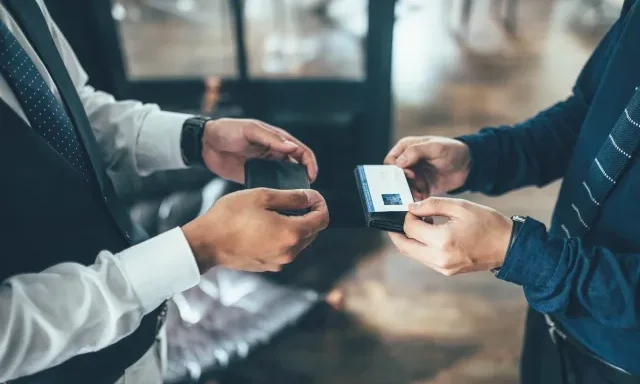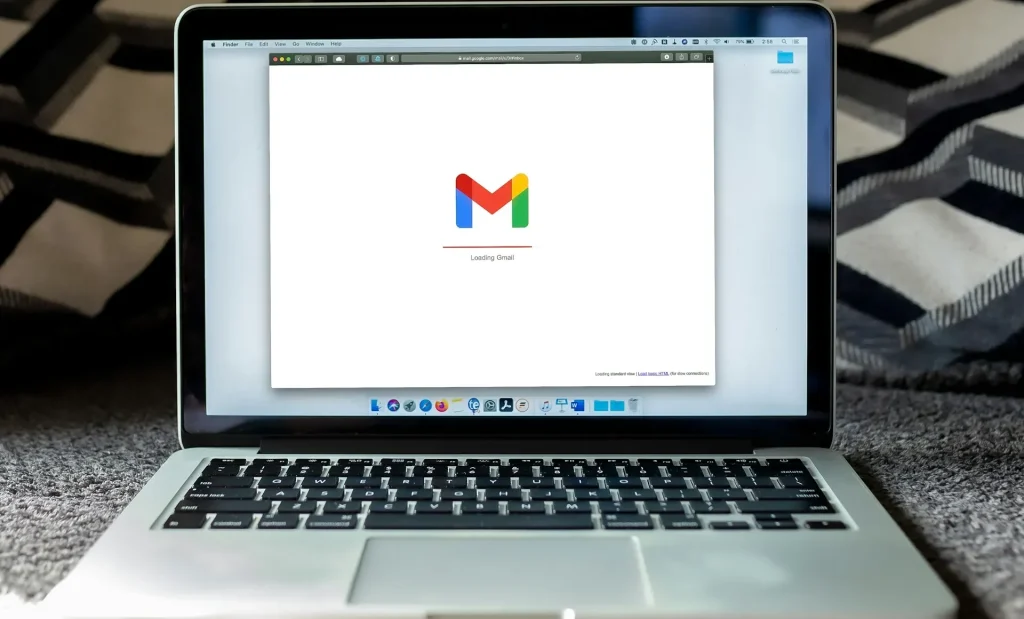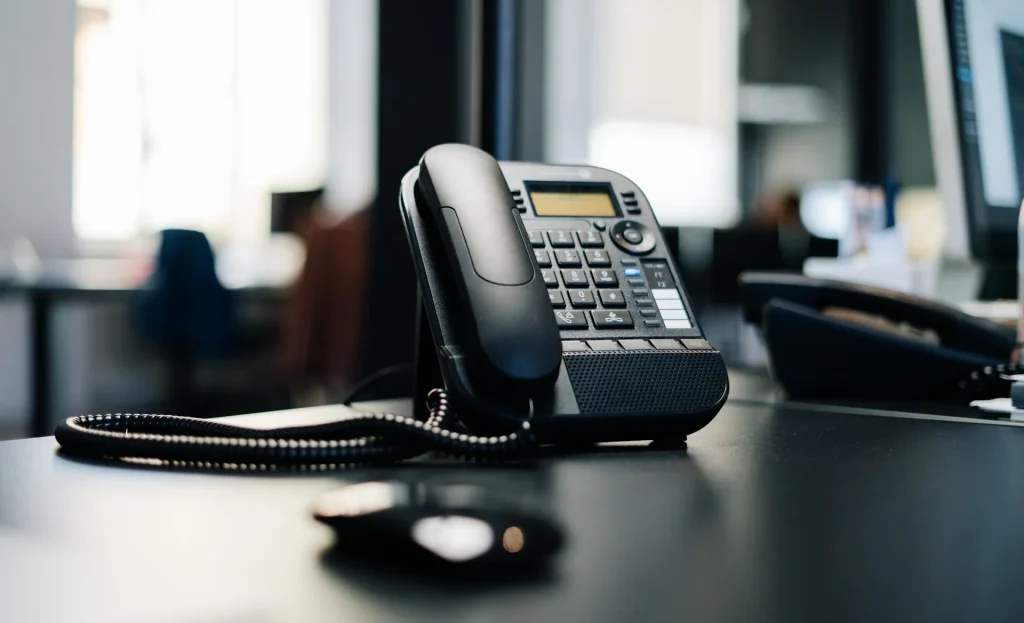A must-see for foreigners! Learn Japanese Business Manners with Fun Quiz!

Japanese business culture is unique and may be confusing to some foreigners. However, understanding Japanese business etiquette is very important when working in Japan.
In this article, you will learn Japanese business manners while having fun through quizzes. By learning proper manners, you can build good relationships with Japanese people and facilitate business.
Let's take a look at Japanese business etiquette one by one through the quiz. You will gain knowledge that will be useful in meetings, exchanging business cards, business lunches, and many other situations. While answering the quiz, check your level of understanding and enjoy learning.
▼Goandup Picks Click here for recommended articles!
- Required before studying abroad! Goandup Nihongo+, an online Japanese language learning service
- This page introduces services for foreigners who wish to study in Japan or improve their Japanese language skills to learn Japanese online.
- Goandup Salon" community for foreigners living in Japan
- We introduce an online community where foreigners living in Japan can exchange information and interact with each other to support their life in Japan.
- Goandup Study" supports foreigners who want to study in Japan.
- This section introduces study abroad support services that provide comprehensive support to foreigners who wish to study in Japan, from preparation for study abroad to living in Japan.
- Where can I buy a prepaid SIM in Japan? Recommended SIM cards for foreigners are also introduced.
- How to purchase a prepaid SIM and suitable SIM cards for foreigners.
- The Complete Guide to Pocket Wi-Fi in Japan for Foreigners!
- We introduce how to select and recommend pocket Wi-Fi products that can be used conveniently in Japan.
- The Complete Guide to Finding a Job in Japan! Finding a job, changing jobs, and part-time work for foreigners
- This site provides foreigners who want to work in Japan with comprehensive information on how to find a job, recommended job sites, and other information necessary to find a job.
Manners at Japanese Meetings

In Japanese meetings, emphasis is placed on smooth progress and smooth communication. It is important to give appropriate greetings at the beginning and end of the meeting. In addition, appropriate timing of questions during a meeting is expected, such as by raising one's hand. These good manners will enhance the productivity of the meeting and deepen understanding among the participants.
Quiz 1: What is an appropriate greeting to begin a meeting?
question: What is the appropriate greeting to give at the beginning of a meeting?
A. "Hello, let's begin."
B. "Thank you for your time today."
▼
▼
▼
▼
▼
correct: B
In Japan, it is appropriate to begin a meeting by saying "Thank you for your time today" and bowing lightly. This greeting shows respect and appreciation for the other party. Instead of simply saying, "Good afternoon, let's begin," a word of thanks will make a good impression.
Quiz 2: Don't forget to thank me at the end of the meeting.
question: What is the appropriate greeting to give at the end of a meeting?
A. "Thank you and good job."
B. "Okay, I'm done with this."
▼
▼
▼
▼
▼
correct: A
At the end of the meeting, it is important to say "Thank you and good job" and bow lightly. This is a way to thank everyone who participated in the meeting for their hard work and express your appreciation. Be sure to give a proper greeting, not a light one such as, "Well, that's it then."
Quiz 3: Questioning Manners During Meetings
question: If I want to ask a question during a meeting, how is it appropriate to do so?
A. Start asking questions immediately
B. Raise your hand lightly and say, "I have a question."
▼
▼
▼
▼
▼
correct: B
If you wish to ask a question during the meeting, it is good manners to raise your hand lightly and say "I have a question" before asking your question. This will allow you to ask your question without interrupting the smooth progress of the meeting. It will also allow you to ask questions at the appropriate time without interrupting other participants' remarks. The simple action of raising your hand is an important part of meeting etiquette.
Rules for Exchanging Business Cards in Japan

In the Japanese business world, exchanging business cards is one of the most important rituals. Exchanging business cards is not just an exchange of contact information; it is an act that shows mutual respect. By learning proper business card exchange etiquette, you can make a good impression on others and take the first step toward building a relationship of trust.
Quiz 4: The Right Way to Exchange Business Cards
question: Which is the correct way to give a business card when meeting someone for the first time?
A. Hand it over with one hand, so that your business card is facing the other person who can read it.
B. Hand it over with both hands, so that your business card is facing the other person who can read it.
▼
▼
▼
▼
▼
correct: B
When handing out business cards, it is important to use both hands and hand them carefully. It is considered rude to hand a business card with one hand. Also, when handing your business card, be aware that your card should be facing the other person so that he or she can read it. This shows respect and seriousness. It is important to correctly understand and practice the sequence of business card exchange.
Quiz 5: Proper handling of business cards received
questionHow should I handle a business card after receiving it?
A. Immediately put it away in your pocket.
B. Place it on the table.
▼
▼
▼
▼
▼
correct: B
After receiving a business card, it is polite to look it over once before placing it on the table, rather than immediately putting it in your pocket. This action shows that you are taking good care of their business card. Also, after receiving a business card, identify the person's name and use it in conversation. This will help to deepen your relationship with the other person.
Manners at a Japanese Business Lunch

A business lunch is an excellent opportunity to discuss business in a relaxed atmosphere. However, business lunches have a unique etiquette, and if you do not understand this etiquette, you may ruin the opportunity. By learning business lunch etiquette, you will be able to promote smooth business negotiations.
Quiz 6: Seating Order Manners at a Business Lunch
question: Which is the correct seating order at a business lunch?
A. Sit yourself first and ask your boss or client to sit later.
B. Your supervisor or client sits first and you wait until you are instructed.
▼
▼
▼
▼
▼
correct: B
The concept of superior and inferior seating is important at business lunches. The upper seats are for those who are being entertained or those of high status, and are usually located far from the entrance. The lower seats are for those being entertained or those of lower status. It is important to understand this and take the appropriate seat. Also, do not sit down yourself until your boss or client sits down.
Quiz 7: How to broach the subject at a business lunch
question: Which is the best time to talk business during a business lunch?
A. Talk business from the beginning.
B. Bring up business after the middle of the meal.
▼
▼
▼
▼
▼
correct: B
At a business lunch, it is important to first relax each other with light conversation rather than suddenly start talking about business. Try to start talking about business in a natural way after the middle of the meal. Also, during the meal, listen to what the other person has to say and express your own opinions at appropriate times. Striking a balance between the meal and business conversation will lead to a smooth business meeting.
Quiz 8: Business Lunch Payment Rules
question: Which of the following is appropriate behavior for a host during a business lunch?
A. If I am the host, I will smoothly pay the bill.
B. Ask guests to pay even if they are the host.
▼
▼
▼
▼
▼
correct: A
The basic rule is that the host pays for the business lunch. The host is the person who invited you to lunch. The host should make reservations in advance and ensure that the bill is paid smoothly. Guests should show their appreciation for the host's payment. Credit cards are generally accepted, but if paying in cash, it is important to have the required amount in advance.
How to use honorifics for superiors and superiors

In the Japanese business world, one is expected to use honorific expressions toward superiors and superiors. Proper use of honorifics is essential for showing respect to others and for smooth communication. Learning how to use honorifics and using them appropriately will help you gain trust as a businessperson.
Quiz 9: Appropriate Honorifics for Supervisors
question: Which is the appropriate language to use to show respect to your boss?
A. "Okay, I understand."
B. "Yes, sir, I understand."
▼
▼
▼
▼
▼
correct: B
When reporting to or consulting with your supervisor, use polite language such as "Would you please do ~" or "Could you please do ~? It is also appropriate to respond to your supervisor's instructions with "I understand" or "Yes, sir. By using such language, you can show respect to your supervisor. On the other hand, casual expressions such as "I understand," "I understand," etc. should be avoided.
Quiz 10: Appropriate Language for Supervisors
QUESTION: What is the Which of the following is an appropriate way to express your opinion to your boss?
A. "I think ~."
B. "~I think so, sir."
▼
▼
▼
▼
▼
Correct answer: B
It is important to use honorific expressions when expressing your opinion to your superior. I think" is a somewhat definitive expression and is not appropriate for superiors. Other polite expressions for making suggestions to your boss include "~ isn't it? When conversing with your boss, it is important to always consider the other party's position and choose appropriate honorific expressions.
報連相, a common practice in Japanese business

報連相 (Horenso) is a very important concept in Japanese business culture. 報連相 is an acronym for "Report," "Contact," and "Consultation," and refers to properly communicating work progress and problems to superiors and colleagues. and may hinder business.
Quiz 11: Meaning and Importance of "Ho, Ren, So"
question: What is the importance of "ho, ren, so" in Japanese business culture?
A. Reporting, Communication, and Consultation
B. Protection, Solidarity, and Creation
▼
▼
▼
▼
▼
correct: A
Hou" means report, "ren" means contact, and "so" means consultation. It is important to report the progress of work and problems at the appropriate time, to contact relevant parties with necessary information, and to consult with your supervisor or colleagues when you are unsure about a decision. To put this into practice, it is effective to hold regular progress report meetings and to share information via e-mail and internal chat tools. 報連相 will help prevent mistakes and ensure smooth business operations by making it a habit.
Quiz 12: Notes on 報連相 in practice
QUESTION: What is the Which of the following actions should be avoided in practicing 報連相?
A. Report problems to your supervisor immediately when they occur.
B. Use your own judgment to solve the problem and report back later.
▼
▼
▼
▼
▼
Correct answer: B
To practice 報連相, it is important to report problems to your supervisor immediately when they occur and ask for instructions. Avoid using your own judgment to solve problems and reporting them later. Improper decisions can lead to bigger problems, and delays in reporting can damage relationships of trust. Since the purpose of 報連相 is to report a problem while it is still small and find a solution with the advice of your supervisor, it is also important to maintain close communication with your supervisor and colleagues on a regular basis to create an environment in which 報連相 can be conducted smoothly.
Japanese Business Email Etiquette

Business e-mail is an indispensable tool for business communication in Japan. Appropriate use of business e-mail can facilitate communication with others. It is important to learn business e-mail etiquette and send e-mails that make a good impression.
Quiz 13: Canned sentences used at the beginning of business emails
question: Which is the appropriate greeting at the beginning of a business email?
A. "Hello, how are you?"
B. "Thank you for your help."
▼
▼
▼
▼
▼
correct: B
At the beginning of a business e-mail, it is common to use the standard phrase, "Thank you for your help. This greeting is a standard phrase to express gratitude to the recipient. On the other hand, "Hello, how are you?" is not appropriate for business e-mails. Depending on the situation, it is effective to use variations such as "Thank you for your continued support" or "I am always grateful for your help.
Quiz 14: What to do if a reply is delayed
question: How is it appropriate to apologize for a late reply to an e-mail?
A. "I apologize for the delay in replying to your message. We apologize for the inconvenience and thank you for your time."
B. "Sorry I'm late. よろしくお願いします again."
▼
▼
▼
▼
▼
correct: B
If you are late replying to an e-mail, please send a message to the following address: "I apologize for the delay in replying to your e-mail. I apologize for the delay and thank you for your time." It is appropriate to formally state a polite apology for the delay and a request for further cooperation, such as "I apologize for the delay in replying to your e-mail. This expression expresses regret for wasting the other party's time and politely asks for future cooperation.
Quiz 15: Email Conclusion
QUESTION: What is the Which of the following expressions is appropriate for concluding a business e-mail?
A. "Thank you very much for your time."
B. "I look forward to seeing you again at the conference."
▼
▼
▼
▼
▼
Correct answer: A
It is common to conclude a business e-mail with a polite and formal expression such as "We apologize for your busy schedule, but we would appreciate your cooperation. This expression expresses gratitude for the other party's time and includes a request for cooperation with the requested item. The concluding words show respect and gratitude to the other party and also serve to reaffirm the purpose of the e-mail.
Quiz 16: How to Write an Email Subject Line
QUESTION: What is the Which is the most appropriate subject line for a business email?
A. "About the meeting."
B. "About the June 15 meeting."
▼
▼
▼
▼
▼
Correct answer: B
The subject line of a business e-mail should be specific and easy to understand. By clearly stating the content and date, such as "Meeting on June 15," it is easier for the recipient to determine the priority of the received e-mail. On the other hand, an abstract subject line such as "About the meeting" may make it difficult for the recipient to understand the content of the message and may cause a delay in the processing of the message. It is important to choose a subject line that expresses the content of the e-mail in a straightforward manner and takes into consideration the efficiency of the recipient's work.
Punctuality and personal appearance in Japan

Punctuality and personal appearance are highly valued in Japanese business culture. Being on time for appointments shows respect for others and is essential to building trust. In addition, being well groomed is a sign of professionalism and responsibility. By observing these basic manners, you will gain trust as a businessperson.
Quiz 17: Business Appointment Times and Ideal Arrival Timing
question: In Japanese business culture, how is it appropriate to arrive at the appointed time?
A. Arrive exactly at the appointed time.
B. Arrive 5-10 minutes early.
▼
▼
▼
▼
▼
correct: B
In a business setting, it is ideal to arrive 5-10 minutes before the appointed time. Arriving well in advance allows you to be prepared and meet the other party in the best possible condition. It also allows you to be prepared for unforeseen circumstances such as traffic problems. On the other hand, last-minute arrivals and tardiness can give the other party a sense of distrust. Punctuality is a basic requirement for business people.
Quiz 18: Appropriate Grooming for Business Occasions
question: Which is the appropriate attire for business in Japan?
A. Casual attire
B. Business casual or better attire
▼
▼
▼
▼
▼
correct: B
In business situations, appropriate attire for TPO (time, place, and occasion) is required. In general, it is preferable to wear a suit or jacket and a clean appearance. Avoid flashy colors, patterns, and revealing attire. It is also safe to avoid excessively conspicuous accessories and hairstyles. It is important to dress in a way that makes a good impression on others and allows you to concentrate on business.
Japan's Polite Business Culture

Japanese business culture is one that values politeness. Showing respect to others by remembering to greet and thank them is essential to the smooth operation of business. Politeness is not just a matter of etiquette, but is a fundamental value of Japanese business culture.
Quiz 19: Business Courtesy Behavior
question: Which of the following behaviors should always be valued in the Japanese business world?
A. Greetings and words of gratitude are important.
B. Strongly asserts his or her own opinions.
▼
▼
▼
▼
▼
correct: A
In business situations, do not fail to greet others with "Good morning" and "Good evening. It is also important to show appreciation for the other party's cooperation or advice by saying "Thank you. These words are not mere formality, but a sign of respect for the other party. An attitude of politeness is essential for gaining trust as a businessperson.
Quiz 20: How to be properly answered on a business phone call.
QUESTION: What is the Which is the appropriate response when receiving a phone call in a Japanese business setting?
A. "Hello, this is Julian."
B. "Thank you for your help, I am Julian from 00 Company."
▼
▼
▼
▼
▼
Correct answer: B
In Japanese business situations, when receiving a phone call, it is important to politely greet the caller with, "Thank you for calling, this is Julian from 00 Company." It is important to greet the caller politely. Be aware that the impression you make on the phone leads to the impression of the company as a whole. In addition, it is bad manners in a business setting to answer the phone with "Moshi moshi. Adding the humble phrase, "Thank you for your business," will make a good impression on the other party.
Quiz 21: How to Receive Gifts in a Business Setting
QUESTION: What is the Which of the following is appropriate behavior when accepting a gift in a business setting?
A. Open it immediately and check the contents.
B. Show appreciation and open later.
▼
▼
▼
▼
▼
Correct answer: B
In Japanese business situations, it is considered rude to open a gift immediately upon receiving it. It is polite to first express gratitude by saying "Thank you" and then "I will open it later at my leisure. This shows respect for the recipient's gift. It is also preferable to open the gift when the giver is not present.
Serious employment support to help you realize your dream of working in Japan!

Do you want to work in Japan?
Let us "Goandup" make that dream a reality!
【 Program Features 】
✅ JLPT N3 level Japanese language acquisition
✅ Thorough preparation for the specific skills test
✅ Full support for job hunting in Japan
Business-focused one-on-one lessons will help you find a job in Japan in the shortest possible time.
【 Program Menu 】
- Individual Japanese language lessons
- Intensive curriculum to obtain N3, especially specialized lessons for business Japanese that can be used at work.
- Intensive curriculum to obtain N3, especially specialized lessons for business Japanese that can be used at work.
- Preparation for the Specific Skills Test
- Customized materials for specific skill tests will be used to focus on frequently asked questions and learning to pass the test.
- Customized materials for specific skill tests will be used to focus on frequently asked questions and learning to pass the test.
- Resume and CV support
- To create resumes and CVs tailored to Japanese corporate culture, and to brush up on self-promotion and motivation for application.
- To create resumes and CVs tailored to Japanese corporate culture, and to brush up on self-promotion and motivation for application.
- Interview Preparation
- Guidance on areas for improvement through mock interviews and feedback based on corporate interview scenarios. Learn interview etiquette and behavior unique to Japan.
- Guidance on areas for improvement through mock interviews and feedback based on corporate interview scenarios. Learn interview etiquette and behavior unique to Japan.
- career consulting
- Provide introductions to companies that match the participant's career goals, select companies to apply to, and provide advice on the level of knowledge required by the companies to which the participant is applying.
- Provide introductions to companies that match the participant's career goals, select companies to apply to, and provide advice on the level of knowledge required by the companies to which the participant is applying.
- Chat Support
- In addition to one-on-one individual lessons, we also accept casual questions via DM (visa application, living support, assistance in finding a room, etc.).
If you are serious about your career in Japan, join us now!
▶︎ for more informationclick here.
We will do our best to support your success in Japan!
summary
Through the above quiz, you have learned the basics of Japanese business manners. By practicing these manners, you will be able to adapt to Japanese business culture and communicate smoothly.
Business manners cannot be acquired overnight, but it is important to accumulate them day by day. We hope that you will make use of what you have learned this time and play an active role in the Japanese business scene.
Your support will help us!
Thank you for visiting Goandup Picks. Our mission is to provide you with more useful information to show the world what Japan has to offer.
Your support will help us to further enhance our activities, so please support us!






